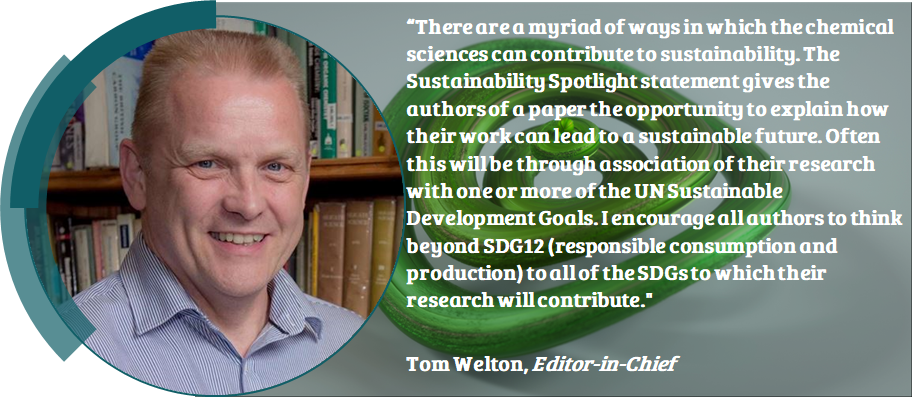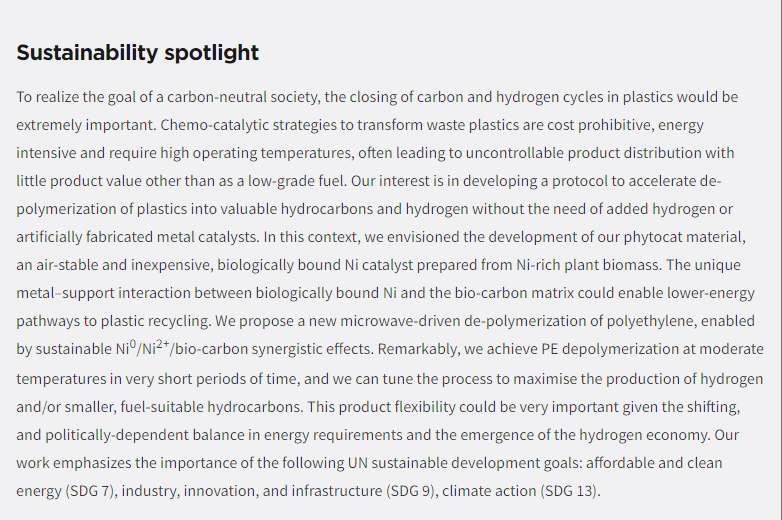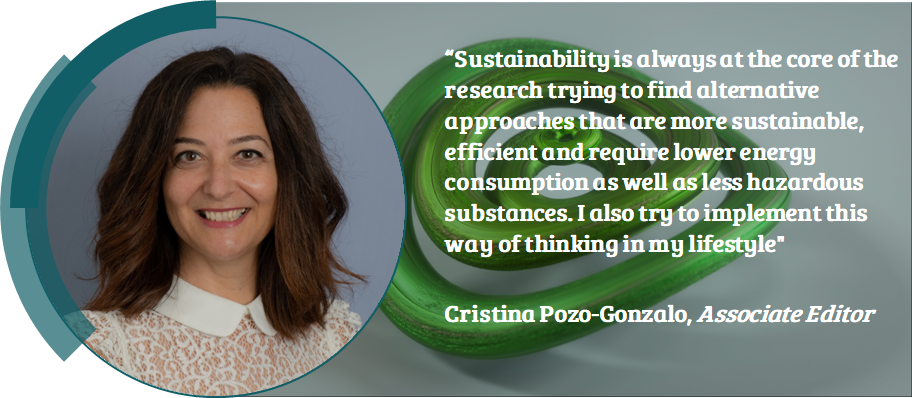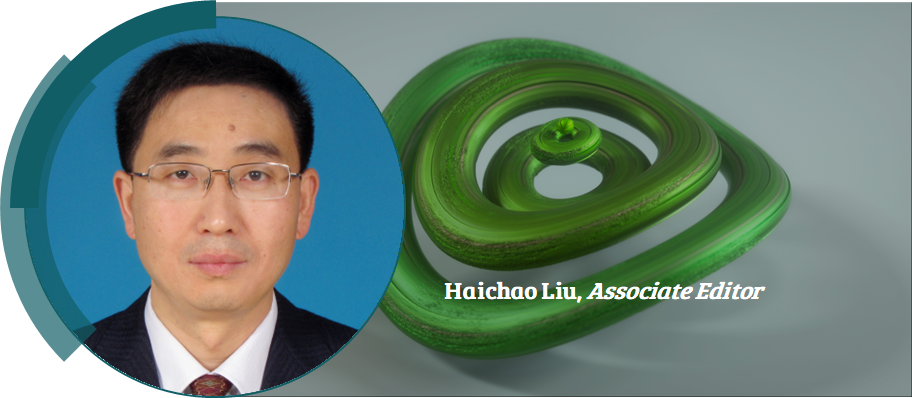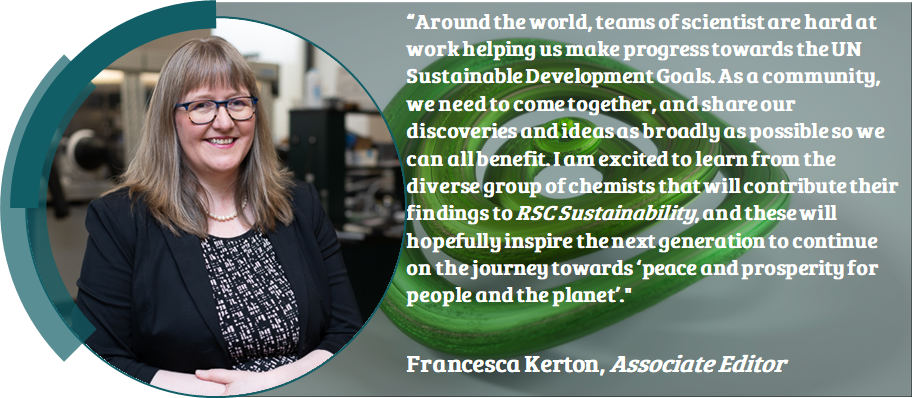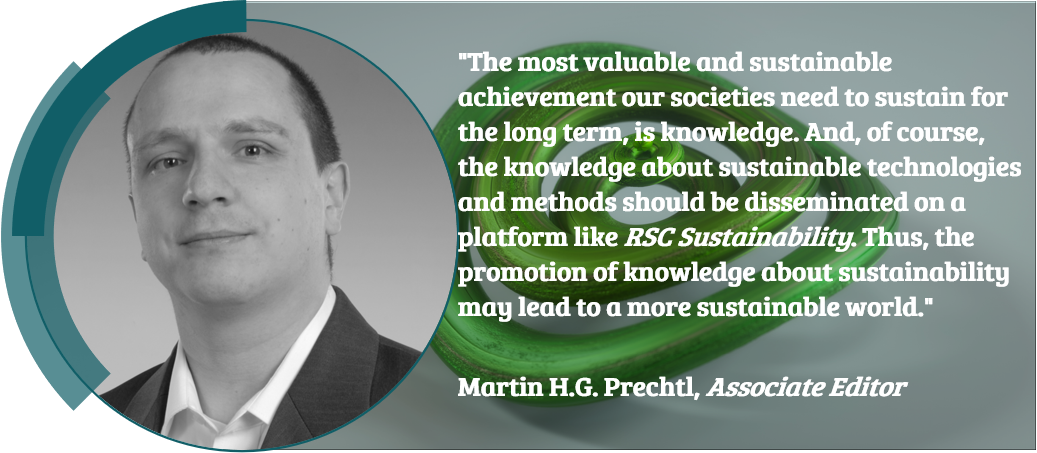
RSC Sustainability champions chemical science discoveries. We want the research we publish to enable the UN’s Sustainable Development Goals, and we are delighted to share our very first papers with you. Read our first articles here for free!
From rocks to bioactive compounds: a journey through the global P(V) organophosphorus industry and its sustainability
Sosthène Ung and Chao-Jun Li
RSC Sustainability, 2022, Advance Article. DOI: 10.1039/D2SU00015F
Biologically bound nickel accelerated de-polymerization of polyethylene to high value hydrocarbons and hydrogen
Parul Johar, Elizabeth L. Rylott, C. Robert McElroy, Avtar S. Matharu and James H. Clark
RSC Sustainability, 2022, Advance Article. DOI: 10.1039/D2SU00001F
Tailoring lixiviant properties to optimise selectivity in E-waste recycling
Jennifer M. Hartley, Sean Scott, Rodolfo Marin Rivera, Philip Hunt, Anthony J. Lucio, Philip Bird, Robert Harris, Gawen R.T. Jenkin and Andrew P. Abbott
RSC Sustainability, 2022, Advance Article. DOI: 10.1039/D2SU00038E
Birch fractionation in γ-valerolactone with the emphasis on pulp properties: prehydrolysis, acid-catalyzed, and alkaline-catalyzed concept
Marianna Granatier, Huy Quang Lê, Eva Carmona González and Herbert Sixta
RSC Sustainability, 2022, Advance Article. DOI: 10.1039/D2SU00046F
Phosphate-induced enhancement of fumarate production from a CO2 and pyruvate with the system of malate dehydrogenase and fumarase
Mika Takeuchi and Yutaka Amao
RSC Sustainability, 2022, Advance Article. DOI: 10.1039/D2SU00031H
Professor Tom Welton: “As the Editor-in-Chief of RSC Sustainability, I am pleased to see these first articles that contribute toward circular economy through the use of renewables and efficient use of nature’s resources, and look forward to our sharing our future papers with you too.”
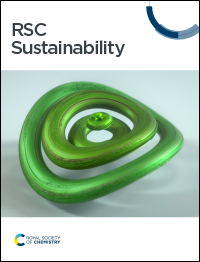 |
RSC Sustainability is a gold open access journal. We welcome solutions-focused research that is dedicated to solving sustainability challenges. Interested in publishing your research? Submit your manuscript.
|
Best wishes,
Tom Welton
Editor-in-Chief, RSC Sustainability
Imperial College London, UK
P.S. Keep up with the latest news from RSC Sustainability and sign up for email alerts.
Our sustainable laboratories programme helps scientists adopt environmentally sustainable lab practices. Read highlights and discover more.
Meet the RSC Sustainability team

Join our board members Tom Welton, Haichao Liu and Fran Kerton for our COP27 satellite event on 11 November 2022. Find out more here.
Comments Off on Discover the first articles from RSC Sustainability
